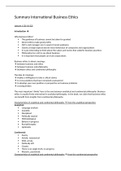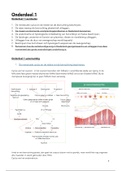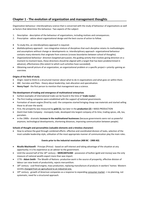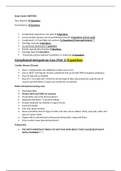Samenvatting
summary + lecture notes International Business Ethics
- Instelling
- Radboud Universiteit Nijmegen (RU)
summary from the course International Business Ethics. Also added are the lecture notes from all the slides of the lecturer. Summary is all the material needed for the exam
[Meer zien]










